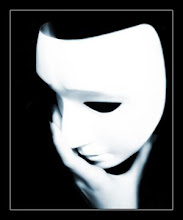Robert Anton Wilson, writer: born New York 18 January 1932; married 1958 Arlen Riley (died 1999; one son, two daughters, and one daughter deceased); died Capitola, California 11 January 2007.
Robert Anton Wilson, who has died after a long illness, treated his forthcoming demise as he had treated the whole of Western culture ever since he first published the Illuminatus! trilogy in 1975. For Wilson, the idea of death was a joke which might have some truth in it.
Wilson was born in 1932 in Brooklyn, New York, and raised there. He studied engineering and mathematics, without graduating, at the Brooklyn Polytechnical College and New York University. From 1965 to 1971 he worked in Chicago for Playboy magazine, a period when the journal still saw itself as the harbinger of a great liberating transformation in Western culture: free sex, free thought, free world.
He and a fellow editor, Robert Shea, spent much of their time answering correspondence from readers on political issues, much of it devoted to obsessive rants about various world-dominating conspiracies. The first draft of their three-volume novel, Illuminatus!, in whose pages dozens of conspiracy theories are treated as all being true, was written while both were still working for Playboy.
Perhaps because it so masterfully combines spoof and paranoia, Illuminatus! soon became a kind of bible for American conspiracy enthusiasts. Taking its absurdly complicated plot from science-fiction writers like A.E. Van Vogt, and its tone of hilarious desperation from writers like Flann O'Brien and Kurt Vonnegut Jnr, the basic story opposes the Illuminati, who have secretly ruled the world since the founding of the Order centuries earlier, to the Discordians, a madcap crew of anarchists whose antics may owe something to Thomas Pynchon's V (1963). In the end, the mysterious figure who "shapes" the Discordians - a Captain Nemo-like shaman who governs the world from a secret submarine - turns out to be the secret master of the Illuminati as well.
It is all a joke, of course, which might have some truth in it; it quite perfectly caught the uneasy exhilaration of the 1970s American counter-culture, which half-believed that the world was passing through a cusp into freedom, and half-knew that the roots of power were untouched by any of this flowering. Timothy Leary said the book was "more important than Ulysses or Finnegans Wake". The Fortean Times - a journal founded to honour the memory of Charles Fort (1874-1932), an earlier Yankee trickster - thought it was properly preposterous. The young Ken Campbell staged the entire trilogy, first in Liverpool in 1976, then as the inaugural production in March 1977 at the new Cottesloe Theatre on the South Bank.
The book itself has remained constantly in print. Shea died in 1983, but over the course of an extremely active literary career Wilson continued to generate harum-scarum continuations like the Schrödinger's Cat trilogy (1980-81), in which an underlying seriousness of intent does gradually surface. Wilson was never serious about world-dominating conspiracies as such; but he was absolutely serious about the realities that these superficially nonsensical theories do reflect. He was highly conscious, in other words, of the barriers that frustrate individual human beings - individual New Age Californians, cynics might respond - from gaining full autonomy in their lives. For Wilson there is indeed a "they" out there, a loose cabal of owners whose primary goal is to make passive consumers of us all.
The term "fnord", which he coined, is all about this. A fnord is a subliminal message that causes anxiety in those who encounter it embedded in stories or other material our masters want us to avoid or deny. The best way to allay this anxiety is not to think about these matters. In joke treatises and tales, into which slyly he infiltrates perfectly serious concerns, Wilson argued for decades that it was necessary for all of us to "see the fnords" that entangle our lives, and to cut free of them.
In later years, Wilson founded and/or joined a slough of fake societies, made a number of records expounding sense and nonsense equally, wrote voluminously in many journals. He was madcap, but never told a frivolous untruth; he was a kind of benign Loki figure for thousands of readers, many of whom helped support him in his last months, when medical expenses had become overwhelming.
John Clute
=======================
EDIT: Robert Anton Wilson tribute night to be held on Out There Radio on the 18th of January, RAW's (and incidentally also my) birthday. Check out http://wuog.org/OutThere/ to download the podcast..jpg)

No comments:
Post a Comment